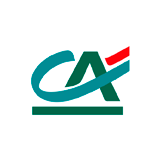Nowadays, there is easy Internet access nearly everywhere, which is quite convenient. We are already used to always being available, talking to our families, reading news and even managing our finances through the phone.
It is very convenient when your phone quickly finds an open Wi-Fi to connect to without any password required! However, have you ever wondered why some Wi-Fi networks require a password while others don’t?
Let’s analyze the dangers of such Wi-Fi networks and ways to protect your finances and personal data.
Secured or unsecured Wi-Fi: what is the difference?
When you go to Wi-Fi settings on your phone, you see a list of available networks:
- Secure networks (with a padlock): These are the networks that require a password. Usually, they are used at home, at the office or at a friend’s house. The password encrypts your data creating a reliable connection channel between your device and the Internet. It’s like a conversation inside a room where no one can eavesdrop on you.
- Open networks (without a padlock): These are free networks available in public spaces: cafés, airports, parks, metro stations. They are also known as public Wi-Fi. They do not require a password, which poses a real threat. Connecting to such network is similar to talking to someone in the middle of a crowded square where everyone hears what you’re saying.
Risks of connecting to an open Wi-Fi network: what is of interest to a fraudster?
When you connect to an open network, all of your information sent through Internet is transmitted without any encryption, in the open. A fraudster, who may be connected to the network, can easily “eavesdrop” on this data flow using special programs. It’s called “traffic interception”. Imagine you are sending a mail without an envelope, a regular postcard, and anyone in the post office can read it.
What are the risks for you?
- Online banking: A fraudster can intercept your login, password and even session data when you enter your online banking. This gives them an opportunity to gain access to your bank account, transfer money or take out a loan in your name.
- E-mail and messengers (Viber, Telegram, WhatsApp): A fraudster can read your personal chats, look through the photos.
- Social media: Your Facebook or Instagram accounts can be hacked. A fraudster will be able to text your friends from your account asking to borrow money or post inappropriate content.
- Website and stores: If you enter your card details to pay for an item while being connected to an open network, there is a chance this information may become a target for fraudsters.
Moreover, fraudsters can create their own network traps titled “Free Cafe WiFi” or “Airport Free Internet”. As soon as you connect to one, all of your Internet traffic is intercepted by them.
How to shield yourself if there’s no other way?
There are situations when you urgently need Internet connection, but the only available is the open one. If there’s no other way but to use one, follow simple yet important rules:
The golden rule: for mobile banking, use exclusively mobile data. For any financial operations, such as logging into your baking app, paying online, always use your mobile data (3G, 4G, 5G). This is your personal secure connection channel, unlike the public Wi-Fi. While using public network, you can read news, check the weather forecast and search information on the open websites.
Do not log into important accounts. Avoid logging into your e-mail, social media and other services where your personal information is stored. Through an open Wi-Fi you can securely read news, check the weather forecast and search information on websites that doesn’t require entering login and password.
Do not install any updates or apps. If a network offers you to download something to get access to it — decline.
“Forget” the network after you’re done using it. When you finish using the network, delete it from your list of saved networks on your device, so that it won’t automatically connect to it next time.
Always choose mobile data or secure Wi-Fi networks protected with a password. If you have to use an open Wi-Fi, be very careful and never perform banking operations while using it. To be aware is to be secure. Take care of yourself and your data!

 Useful information
Useful information
 Useful information
Useful information
 Useful information
Useful information
 Useful information
Useful information
 Useful information
Useful information
 Useful information
Useful information
 Useful information
Useful information
 Useful information
Useful information
 Useful information
Useful information
 Useful information
Useful information
 Useful information
Useful information
 Useful information
Useful information
 Useful information
Useful information
 Useful information
Useful information
 Useful information
Useful information



